New Zealand Cuts Human Rights Dialogue With Iran
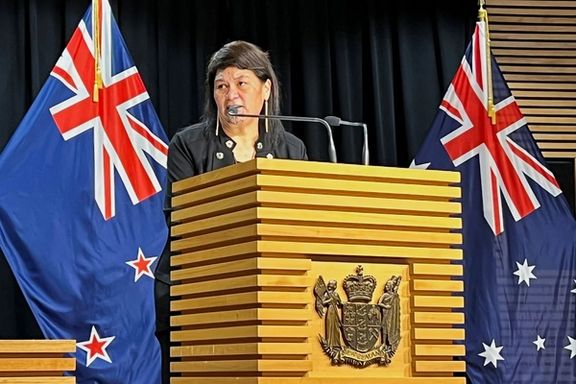
New Zealand has suspended its official bilateral human rights dialogue with the Islamic Republic, saying bilateral approaches were "no longer tenable" given Tehran’s gross violations.

New Zealand has suspended its official bilateral human rights dialogue with the Islamic Republic, saying bilateral approaches were "no longer tenable" given Tehran’s gross violations.
In a statement on Monday, New Zealander Minister Foreign Nanaia Mahuta said the decision sends a strong signal that bilateral approaches on human rights were not tenable with the Islamic Republic, which has been denying basic human rights and violently suppressing protests sparked by the death of 22-year-old Mahsa Amini after she was arrested by the so-called morality police for attire deemed inappropriate.
She said, “Violence against women, girls or any other members of Iranian society to prevent their exercise of universal human rights is unacceptable and must end. This is clearly a difficult time for the people of Iran.”
Tehran and Wellington had established the dialogue in 2018 with the stated hope of advancing human rights issues and concerns, and held the first round of talks in 2021. The next round of negotiations was scheduled to take place later in 2022.
Last week, New Zealand’s officials confirmed that two New Zealanders, who had been detained in Iran for a number of months, had been released and were safe. The New Zealand government also last Wednesday updated its travel warnings for Iran and urged New Zealanders currently there to leave.
Amid nationwide unrest and widespread arrests, several foreigners visiting Iran have disappeared, confirming earlier reports that the Islamic Republic is taking foreign citizens hostage.
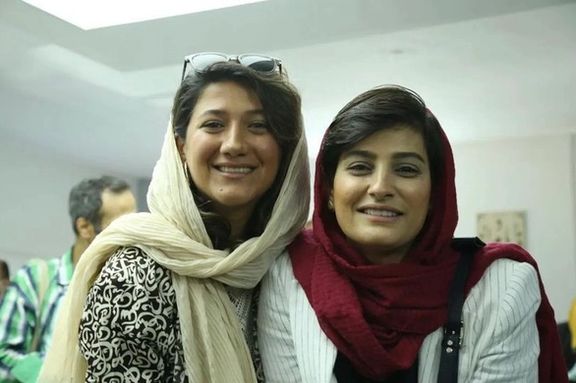
More than 300 Iranian journalists have demanded the release of two colleagues arrested over exposing police brutality that killed Mahsa Amini over ‘bad hijab.’
Their call came in a statement published by the Iranian Etemad and other newspapers on Sunday.
Iranian journalists and social media activists have also condemned a joint statement issued by the country's top intelligence organizations that accused the two female journalists of instigating "riots" in Iran by covering Amini’s death.
Iran's Ministry of information that operates under President Ebrahim Raisi's administration and the IRGC Intelligence Organization which operates directly under Supreme Leader Ali Khamenei and reports to him had in a joint statement on October 28 accusing Niloufar Hamedi and Elahe Mohammadi, two women journalists arrested days after protests began in September, of spying for several foreign agencies including the CIA, MI-6 and Mossad.
Many Iranian journalists, including Hassan Namakdoust Tehrani have pointed out that "what Hamedi and Mohammadi did was simply fulfilling their responsibility as journalists."
Reformist daily Sharq, for which Niluofar Hamid worked wrote: "Niloufar has been in jail for more than a month. Saturday, October 29 is her birthday, and we hope that she and all other journalist in jail return to their newspapers soon."
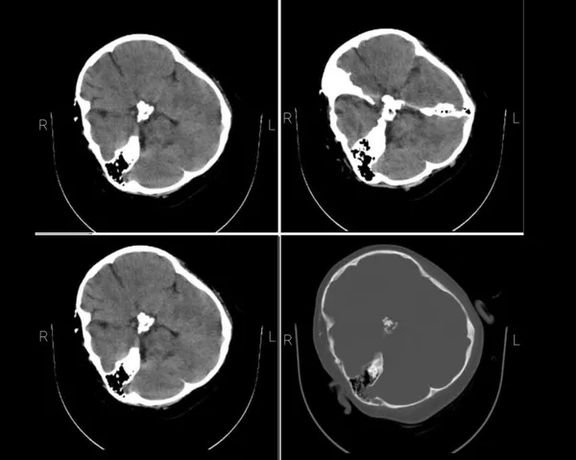
Meanwhile, Washington Post’s Jason Rezaian, an Iranian American journalist who was a hostage in Iran in mid-2010s and was released as part of a prisoner swap after the 2015 nuclear deal with the West, wrote on Saturday, "In a rare moment of agreement the Islamic Republic’s Ministry of Intelligence & the Intelligence unit of the IRGC issued a ridiculous statement claiming journalists Niloofar Hamedi & Elahe Mohammadi are agents of the CIA, MI6, Mossad, Saudi intelligence & several other countries."
Reformist commentator Abbas Abdi referred to the Iran intelligence agencies accusation that the two journalists were trained by foreigners to report on Mahsa Amini's death, wrote: "Sending a prominent journalist such as Elaheh Mohammadi to a training session to learn to report is like sending a person with a Ph.D. in mathematics to a class to learn the rules of multiplication."
The managing editor of Ham Mihan, the newspaper where Elaheh Mohammadi's report about Mahsa Amini's death was published wrote that her coverage was similar the the IRGC-linked Fars news agency's account of the event and what other agencies had reported at the time with even more details. Gholamhossein Karbaschi pointed out that it is not easy for a reporter to work in a security atmosphere.
He said the authorities have told him that the accusations against the journalist had nothing to do with her job as a journalist. Nonetheless, the statement by the intelligence organizations is about Ms. Mohammadi's role as a reporter, Karbaschi said, adding that this attitude toward journalism is not in the interest of Iran's media environment. Referring to the point the agencies made about the reporters' trying to be the first to break the news, Karbaschi said this is what every good journalist does, and the authorities had better change their attitude.
He added: "No news will remain concealed forever and it will reach the whole world soon." Kartbaschi pointed out that "It is in the interest of the country to have the right news disseminated by domestic press rather than creating a situation in which Iranians get the news first from foreign-based media," referring to Persian broadcasters abroad.
Prominent Iranian journalist Niloufar Ghadirian, the former editor of Hamshahri daily wrote: "Niloufar Hamedi and Elaheh Mohammadi will be always remembered as honest, brave and dedicated journalists. Their names will be remembered in journalism courses for many years."
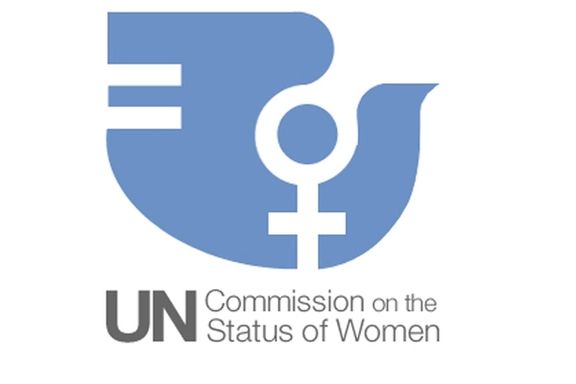
A group of women leaders in business, politics, and the arts from over 14 countries has called for the immediate expulsion of the Islamic Republic from the UN Commission on the Status of Women (CSW).
In an open letter, published in The New York Times on Sunday, the preeminent leaders expressed their solidarity with Iranian women and girls, as well as men, who are holding daily protests for more than 40 days across the country and abroad following the death in custody of 22-year-old Mahsa Jina Amini.
Signatories of the letter include former US Secretary of State Hillary Clinton and First Lady Michelle Obama, Canada's Deputy Prime Minister Chrystia Freeland and media tycoon Oprah Winfrey as well as Nobel laureates Malala Yousafzai and Nadia Murad.
They also launched a petition on www.womanlifefreedom.today that calls on the United Nations to expel the Islamic Republic from the commission, receiving more than 21,000 signatures within the first few days of going live. Additionally, more than 130,000 petitioners have also signed another letter asking for the same outcome on Change.org.
Lamenting the Islamic Republic's record on women's rights and the brutal violence of security forces against peaceful protesters, they said, “Earlier this year, to the dismay of women's rights advocates around the world, Iran began a four–year term on the UN's 45–member Commission on the Status of Women. This preeminent global body is exclusively dedicated to promoting gender equality and women's empowerment. The Islamic Republic of Iran's long–standing, systematic oppression of women should have disqualified them from election to the CSW."
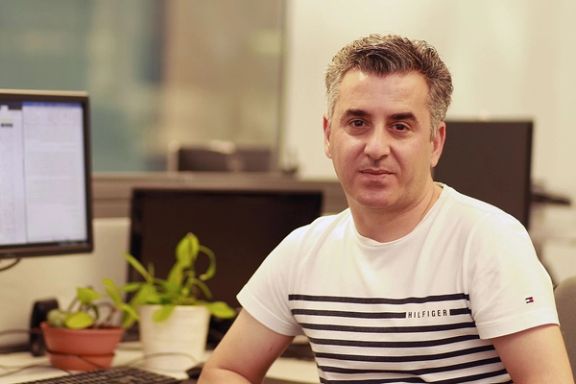
Iran’s Revolutionary Guard’s intelligence organization has secretly buried the body of an exiled Iranian journalist whose coffin was shipped to Iran for family burial.
According to information obtained by Iran International, Reza Haqiqatnejad was buried in an area far from his hometown in the southern Fars province without the permission of his family. The reason for the secret burial without any funeral service is not clear since he was not a member of any opposition group. The only explanation can be an IRGC attempt at revenge since he was a top analyst who exposed the regime’s contradictions and weaknesses.
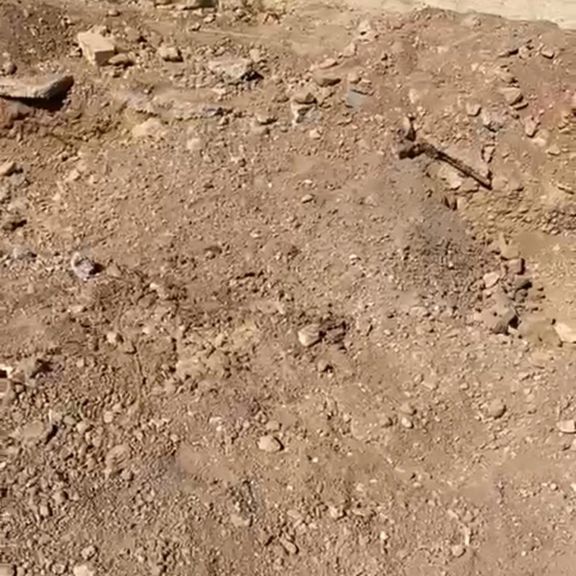
The IRGC had taken away Haqiqatnejad’s body after his coffin arrived in Iran, preventing his burial in his hometown of Shiraz.
In a video message released on social media, the deceased journalist’s elderly mother had pleaded with authorities to let her see and bury his son. Haqiqatnejad, 45, passed away in Berlin after six months of battling cancer. He died on October 17 and his body was repatriated to Iran for burial on October 25.
He worked for Radio Farda, a Persian broadcaster in Prague financed by the US Congress.
His family had made arrangements for burial at a cemetery in Shiraz and acquired all the relevant permits but according to his relatives and friends, security forces have been pressuring the family to agree to his burial in a cemetery outside the city.
The abduction of his body drew numerous reactions by the public, who said the Islamic Republic is even afraid of his dead body.
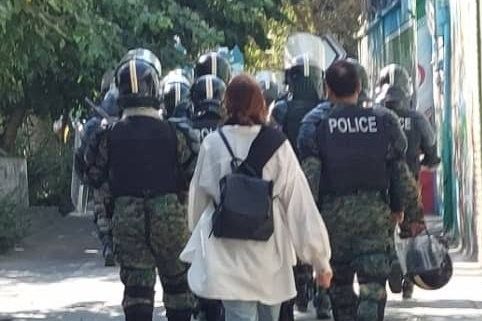
The Islamic Republic’s organization enforcing dress code regulations has taken new measures to intensify the observance of hijab, which many Iranians are defying.
Ali Khan-Mohammadi, the spokesperson of Iran’s Headquarters For Enjoining Right And Forbidding Evil, tasked with promoting the Islamic Republic’s interpretation of Islamic laws, said on Sunday that the body has signed an agreement with the country’s judiciary to use Basij paramilitary forces as hijab enforcers.
According to the new agreement, the roles of mosques and local Basij bases will increase in the enforcement of dress code laws and commanders of Basij units will be ordained by the judiciary as official hijab enforcers.
Basij are religious zealots and a paramilitary force under the command of the Revolutionary Guard. Their involvement in hijab enforcement will further increase tensions in Iran.
Removing hijab is a legal offence by women, and the government’s position will not change in this regard, Khan-Mohammadi stressed.
Since antigovernment protests started across the country in mid-September, when 22-year-old Mahsa Amini was killed in the custody of hijab, police, many Iranian women are now appearing in public places without headscarves to express solidarity with protesters.
On Saturday, Commander of Iran’s Revolutionary Guard Hossein Salami threatened people not to take to streets anymore saying that Saturday was the last day of protests.
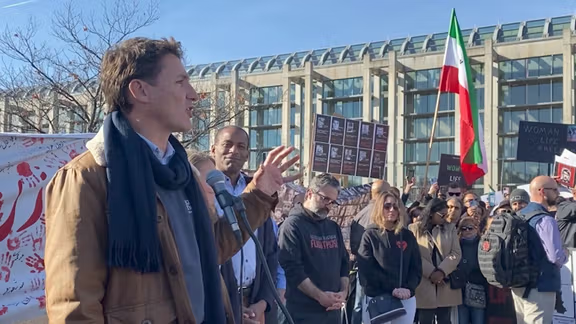
Prime Minister Justin Trudeau has spoken about the likelihood of regime change in Iran, saying that Canada will no longer be a haven for those affiliated with it.
The prime minister, who attended a large gathering of Iranians in Ottawa with his wife, said probably when the regime changes and the situation gets better in Iran, those responsible for oppressing the people will never be forgotten and will never be allowed to come to Canada.
Trudeau is the first Western leader to acknowledge that current protests in Iran can bring about regime change.
In a powerful show of solidarity with the people in Iran, hundreds gathered in the Canadian capital on Saturday to speak out against Iran’s religious, authoritarian government.
Demonstrators formed a human chain, tramped their feet, and chanted Mahsa Amini’s name. She was the young woman whose death in September sparked the uprising in Iran.
Iran has been gripped by six weeks of protests that swept the country when Amini, 22, was arrested for not following Iran’s strict dress rules for women known as hijab. She received fatal head injuries in police custody and died on September 16.
“We will stand with you, I will march with you, and I will hold hands with you,” Trudeau said, adding “We will continue to stand with this beautiful community and demonstrate to the world that we will not forget Mahsa Amini.”
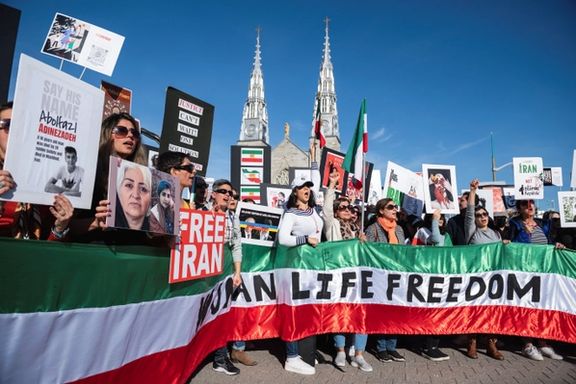
Elsewhere in his remarks Trudeau stressed, “We know there are people in Canada now who have benefited from the corrupt, from the horrific regime in Iran and who are hiding amongst ... this beautiful community.”
In recent years, several Iranian officials accused of corruption or human rights abuses have been seen in Canada, either permanently or on a trip.
One of them was Mahmoud-Reza Khavari, the former CEO of the state-owned Melli Bank, who fled to Canada in 2010, after being accused of embezzling billions of dollars.
The other was Morteza Talaei the former commander of Tehran’s police force. He was in office when the regime beat the Canadian-Iranian journalist Zahra Kazemi to death in Evin Prison in 2003. A photograph was published on social media showing him at a gym near Toronto in 2020. His presence in Canada sparked outrage among Iranians who urged the government to expel officials and agents of the Islamic Republic.
During the rally on Saturday Trudeau said “Taking advantage of Canada's freedoms, Canada's opportunities, and using the riches they stole from the Iranian people to live a good life in Canada. Well, we say no more.”
The Canadian premier also noted that his government will be working to ensure his country is never again a safe haven for “killers, murderers, and those responsible for the oppression of Iranian people.”
Trudeau also raised his fist chanting slogans in Persian saying, “We will stand with you. I’ll march with you, I will hold hands with you. We will continue to stand with this beautiful community.”
After his statements, Trudeau accompanied hundreds of protesters in a march across the city.
Iranian diaspora also held similar demonstrations and formed human chains in other cities from Australian to Berlin and to Canada, including, Montreal, Toronto, and Vancouver.
The shift in the Trudeau cabinet's approach to Iran comes as he was criticized earlier on Iranian social media for not participating at any event or demonstration related to Iran.
Many believe the Canadian government has realized the facts on the ground have changed and increasing pressure by the Iranian-Canadians has finally brought about a change in policy.